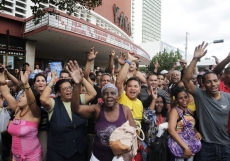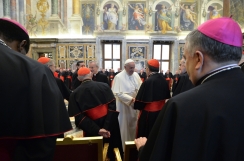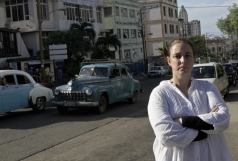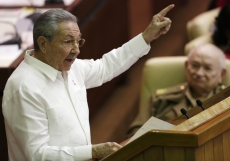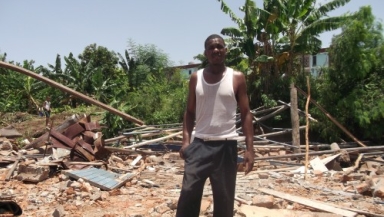
Violations of religious freedom are increasing in Cuba, according to a new report released by Christian Solidarity Worldwide (CSW) today.
The number of recorded violations has risen year on year. There were 220 recorded incidences in 2014, up from 180 the previous year, 120 in 2012, and 40 in 2011.
The incidences have also become more violent, with cases of Protestant pastors being arbitrarily detained or beaten and churches being demolished.
But the increase in the figures is partly owed to more information being reported, despite government restrictions on information.
"There is a crackdown happening... but that's come simultaneously with more people speaking out and being ready to put their work and their situation on the line to make sure information gets out," CSW's Cuba advocate told Christian Today. "I think that then provokes a more intense crackdown, so it's a circular cycle.
"Everything's monitored, so the Cuban government has complete control over telephone lines and internet connection. Any pastor or church official who tries to send information out is doing that knowing that what they are doing, the government's going to know about and that comes with repercussions."
Those who have reported violations have been harassed and some have been threatened with arrest.
Religious life in Cuba is regulated by the Communist Party's Office of Religious Affairs (ORA), which has the power to recognise certain religious groups and permit them to build new premises while denying others.
But even churches that are registered, legally operating church can face intimidation. CSW's spokesperson said members of the congregation can be threatened with losing their jobs, pastors' children are often singled out at school, and the ORA can refuse to allow building repair work to be done.
Unregistered churches can experience anything from the confiscation of property to the demolition of the church building.
In July 2014 the ORA sanctioned the demolition of the Establishing the Kingdom of God Church in Santiago de Cuba. The pastor and his family were from their home, where the church met, early one morning and then the building was reduced to rubble.
One Baptist leader, Rev Homero Carbonell, left the island last year after 52 years of ministry and was granted asylum in the US on the basis of harassment from the ORA.
However, the authorities did sanction the building of two new Catholic churches in Santiago de Cuba and Pinar del Rio.
The inconsistency of treatment by the ORA is a major concern of the report. There are fears that by making concessions to some communities, such as the Catholic Church, the government is trying to improve its image abroad, while restricting the activities of other groups.
"On the one hand the government is promoting this image that everything's fine and they respect religious freedom, while simultaneously back home, really cracking down," the CSW spokesperson said. "My worry is that people will buy into that and believe that narrative, when the numbers just don't show that."
The report calls for governments to recognise this double standard.
"Real religious freedom can only exist if it is enjoyed by all religious groups without discrimination," the report says. "It is vital that the European Union, United States and other governments around the world do not allow the Cuban government to pretend that granting limited privileges to one or two religious groups over others constitutes an improvement in religious freedom."
Although the Roman Catholic Church has more freedom than most, it too has faced problems in the last year. Having waited for years for permission to conduct necessary repairs, the Franciscan monastery in Guanabacoa was forced to close in 2014. As a result, most of the monks will be leaving Cuba even though their order has been there for centuries.
Visitors travelling for religious reasons also encounter restrictions imposed by the ORA. Visas must be issued via the ORA, which means that unregistered groups often cannot receive visitors.
Importing Bibles and other religious materials is also severely restricted, as it must go through the Cuban Council of Churches, to which the majority of Protestant Cubans, as well as the Roman Catholics, do not belong.
"The negative trend seems to be part of a general attempt by the government to eliminate the potential or any social upheaval by cracking down on any groups it perceives as potentially problematic," the report says.
Religious groups could be considered 'problematic' if the government fears they will call for social and political reforms.
CSW does not think it likely that improved relations with the US will have any effect on the treatment of religious groups.
The Catholic Church estimates that about 6 per cent of the Cuban population regularly attend mass. According to CSW about 12-15 per cent are actively involved in Protestant denominations. A large proportion of the population (up to 80 per cent) have some involvement in non-Christian Afro-Cuban traditional religious groups.










